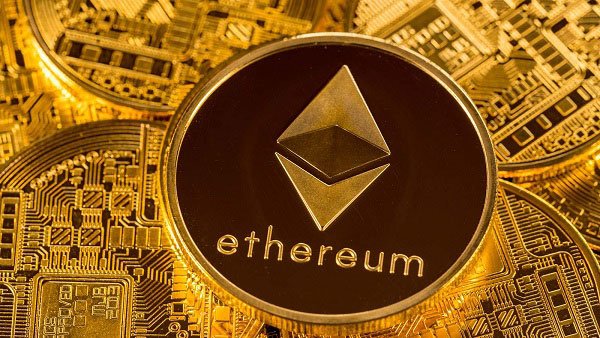Difference Between Bitcoin and Ethereum
However, like all empires, there are always rivals who want to contend for the throne. In recent years, new and faster technology has expanded the concept of blockchain and what it can be used for.
In this article, we will talk about Bitcoin's place in today's crypto world and the role of Bitcoin's leading ally or competitor, Ethereum.
Bitcoin and Ethereum is the story of two technologies
When looking at the differences between Bitcoin and Ethereum, it is important to understand that they are similar but not exactly the same. Bitcoin and Ethereum are both used as fast and secure peer-to-peer payment methods. These methods secure and store value, diversify sources of money, and pay retailers in exchange for products or services.
However, they are designed to serve completely different purposes.
The creator of Bitcoin, Satoshi Nakamoto, originally intended to treat it as a form of currency, a way of paying for goods and services to conduct transactions without a middleman, in order to reduce costs and time transaction time. On the other hand, Ether, the native cryptocurrency of Ethereum, powers many other blockchain applications.
Here's how each of these virtual currencies works, what they were created for, and how they're actually used today.
Bitcoin acts as a currency

In 2008, a mysterious figure named Satoshi Nakamoto published the white paper Bitcoin: A Peer-to-Peer Electronic Cash System. At the time of writing, the true identity of Satoshi Nakamoto is still unknown. In fact, it remains unclear whether this is an alias or a front for a larger, organized group. Released as open source software, Bitcoin is the original cryptocurrency created through the process of mining. Bitcoin mining is the process by which powerful computers solve complex mathematical puzzles to generate new Bitcoins.
Electronic money
In the beginning, Bitcoin was like cryptocurrency - anonymous, secure and fast. Because of these, Bitcoin has a long and complicated history, especially in the dark web. Before going mainstream, Bitcoin was the preferred payment method for the underground Internet economy.
Combined with its anonymous creator and lack of official adoption, this is one of the reasons why Bitcoin struggled with legitimacy in its early years. However, despite its not-so-transparent beginnings, Bitcoin has changed its image over time.
Wide applicantion
Eventually, Bitcoin became mainstream, widely accepted by people and institutions worldwide. From tech companies, auction houses, fast food chains to local businesses, Bitcoin is the most recognizable cryptocurrency today.
In 2021, Nasdaq reports that over 46 million Americans own Bitcoin. Currently, over 15,000 retailers accept Bitcoin as a payment method. It can be said that the number of Bitcoin users and retailers is growing exponentially every year.
Digital Gold
By design, only a certain number of Bitcoins will be created. This is mainly to maintain the anti-inflation properties that affect fiat currencies. There will only be 21 million Bitcoins in existence, although many millions of Bitcoins are said to have been lost.
Moreover, the limited supply of Bitcoin has led to an unexpected consequence. Although Bitcoin was designed primarily as a currency, many users now use BTC as a store of value. As digital gold, Bitcoin has evolved to be more of an investment vehicle than for everyday use.
Many crypto enthusiasts often liken that Bitcoin is walking, while blockchain is running. In fact, one of today's rising blockchain stars - Ethereum - could even fly.
Ethereum acts as a network

Launched in 2015, Ethereum is an open source computing platform run by the community. Currently, Ethereum is the largest and oldest decentralized software platform. Using smart contracts, Ethereum allows no downtime, fraud control or third-party interference, essentially putting power back in the hands of its users.
The Ethereum Virtual Machine (EVM) helps ensure that these transactions or smart contracts follow network rules. In order for these actions to be performed, users need to use Ether, the network's token. The Ethereum blockchain will then store the entire history of all transactions and smart contracts on the network.
In many ways, Ethereum ushered in the next generation of blockchain-powered technology. Often referred to as the world computer, here are a few examples of Ethereum's many uses.
Dapp
Decentralized applications, commonly known as Dapps, are applications that run on the Ethereum blockchain. Overall, Dapps are like most other apps you use. However, your interactions and transactions are recorded on the Ethereum blockchain. Since the Dapp runs on the Ethereum blockchain, it uses the same decentralized, distributed model, which means that the Dapp is nearly impossible to restrict or censor.
Many Dapps are related to finance, but there are also Dapps for games, marketplaces, shops, etc.
Decentralized Finance (DeFi)
Decentralized Finance (DeFi), a financial system that does not discriminate or have any downtime, is one of the practical and popular applications with the Ethereum network. Using DeFi, Ethereum allows you to send, receive, borrow and earn interest from anywhere in the world.
To bypass the traditional banking system, users only need an Ethereum wallet and the Internet. This not only helps people living in areas without access to financial services, but also reduces the huge costs associated with transactions.
Non-Fungible Token (NFT)
Besides, Ethereum also allows the use of Non-Fungible Tokens (NFT). NFT revolutionizes Internet ownership and helps creators encrypt their work, allowing them to automatically earn royalties each time it is resold.
For this reason, creators can experience anti-fraud protection, proper compensation, and even use tokens as collateral for financial services. In addition, NFT helps to protect users from others who intend to profit without their consent.
You should read it
- ★ The different roles of Bitcoin and Ethereum in the virtual currency world
- ★ Ethereum phishing attacks help criminals earn $ 15,000 in 2 hours
- ★ The unexpected story of young millionaires emerges from a bitcoin fever, ethereum
- ★ Why Bitcoin fell but Ethereum peaked?
- ★ Bitcoin could reach $200,000 and Ethereum $12,000 by the second half of 2022